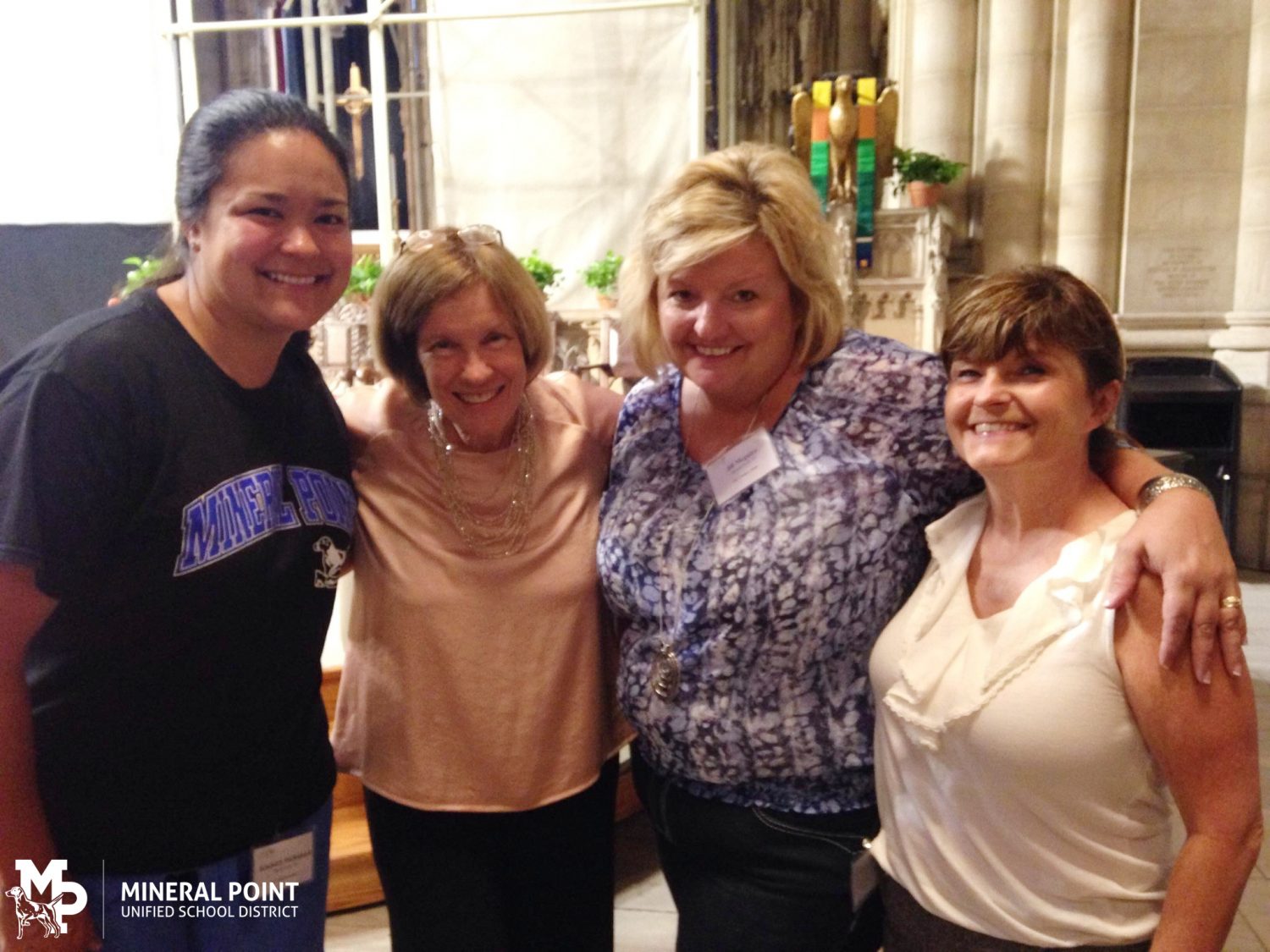
MP Teachers meet with Lucy Calkins, writing workshop director.
Three Mineral Point Elementary teachers are having the honor of attending The 23rd Annual August Institute on the Teaching of Writing August 1-5 at Columbia University in New York City.
Kimberly Diefenbach, Jill McGuire, and Penny Wiegel are participating. This is designed for educators, classroom teachers, school administrators, and curriculum specialists who are committed to turning classrooms into richly literate reading and writing workshops.
The following is a partial list of topics that will be studied:
- Creating ambitious goals that encourage independence, volume, qualities of good writing, and craft
- Genre studies in writing essays, narratives, research-based arguments, and informational texts
- Methods of holding students accountable for doing their best work
- Teaching reading in the writing workshop
- Assessment-based small group instruction
- The relationship between global standards and the teaching of writing
- Using interactive writing and other components of balanced literacy to scaffold writing skills
- Using performance assessments and learning progressions to develop data-based instruction in writing
- Using toolkits, charts, and student-facing rubrics to support writers in revision
- Using mentor texts to lift the level of student work
- Teaching students to transfer word study knowledge into writing
- Teaching students to research towards source-based information and argument writing
- Literary essays and text-based writing
- Using technology to enhance the research and writing process
Lucy Calkins, pictured here with the Mineral Point teachers and Founding Director of the The Reading and Writing Project, is the author or co-author of scores of books and is the Richard Robinson Professor of Children’s Literature at Teachers College, Columbia University, where she co-directs the Literacy Specialist Program.
For over 30 years, educators have come together at Teachers College for summer institutes on the teaching of reading and writing. Well over 170,000 teachers have attended the week-long institutes.
Together, staff developers at the Project and educators from across the globe study methods and plan curricula, revitalize their thinking, and most importantly, encourage students to lead rich and literate lives.

